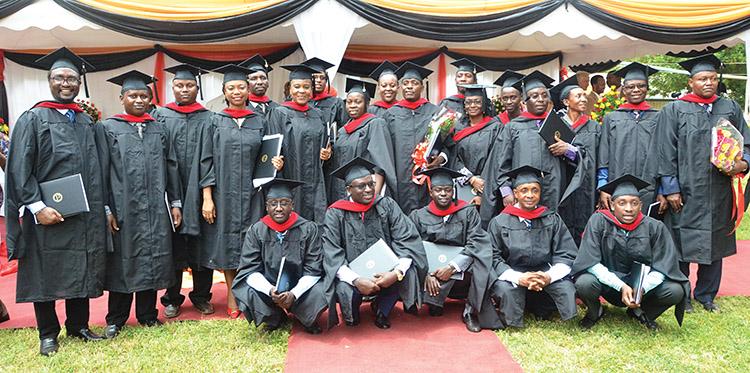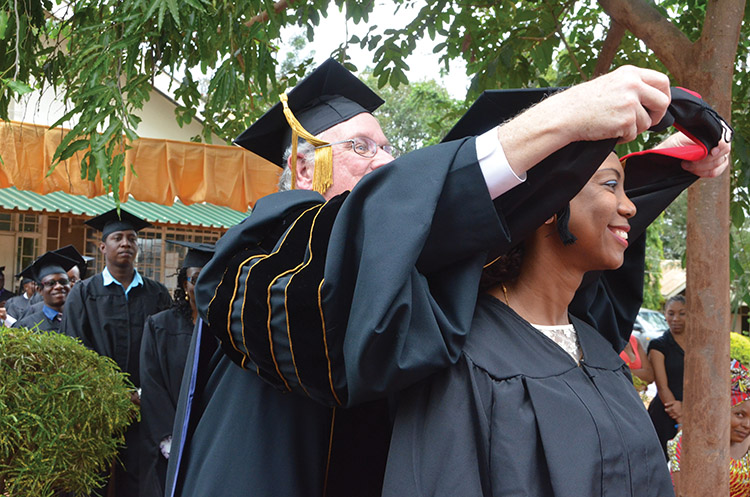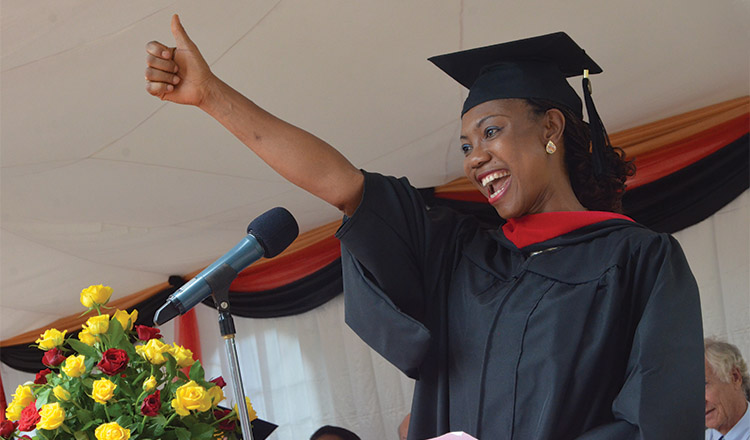A week after Abigail Ekeigwe’s (MS T’16) friend Nkechi gave birth by caesarean section last November, she was not healing, and she was experiencing severe pain and high fevers. “It was clear that she had a serious infection, although she had been on antibiotics. The doctor extended use for another two days, yet she had no respite,” says Ekeigwe, chief regulatory officer for the Central Drug Control Laboratory at the National Agency for Food and Drug Administration and Control in Lagos, Nigeria, West Africa. Suspecting that the antibiotic was fake or substandard, as often happens in African countries, the doctor obtained a different brand from a trusted pharmacy. “The resolution of the symptoms was magical,” Ekeigwe says. “Within hours her fever was under control, and within two days there were remarkable signs of healing.” Today, “her baby is about six months old, and mother and child are fine.”
That story, those of her own relatives and friends who have died, and countless more haunt Ekeigwe, who has worked more than 15 years in Nigeria’s drug regulatory field. “It has always been my vision to assist in making sure that only good-quality medicines are available to and consumed by Africans,” she says. “This is the reason I went into the drug regulatory field.” However, “I found myself only trailing behind the complex issues arising in my industry.”
Desperate to reverse the prevalence of pharmaceuticals that harm or even kill, which the World Health Organization reported caused about 100,000 deaths in Africa in 2013, Ekeigwe returned to school. In February, she earned a master’s of technology degree from the Kilimanjaro School of Pharmacy in Tanzania, offered through Purdue Polytechnic Institute and its Center for Professional Studies. Her two years of coursework, which included four classes taught in four two-week intensives on campus in Tanzania and six online Purdue classes, focused on biotechnology and regulatory science.

Purdue first got involved with the school in 2007 with a certification program coordinated by Sister Zita Ekeocha at Kilimanjaro and Stephen Byrn, the Charles B. Jordan Professor of Medicinal Chemistry, at Purdue University. Students earned a certificate from the African school. The opportunity to earn a Purdue master’s at Kilimanjaro began in 2014. It’s co-directed by Byrn and Kari Clase, Purdue associate professor of technology leadership and innovation. “It is imperative that Africans develop their own ability to make medicines,” Byrn says. “Students in our program will ultimately eliminate the inequality of medicines we see between the developed world and the developing world.”
Since beginning her advanced studies, Ekeigwe has implemented a quality management system in her lab, which analyzes human and veterinary drugs, cosmetics, and medical devices, a compliance step required for market authorization. She’s also providing extensive training to her staff and bringing together others in healthcare to establish a professional training consortium. “I have learned a lot from this program,” she says. “The knowledge is like a burning fire within my bones. I have to judiciously, efficiently, and effectively disseminate it.”
She’s set ambitious service goals. “I have a personal initiative of educating the healthcare community on the problems of medication error and fake or substandard drugs and how to solve them,” she says. “It is a moral, professional obligation to keep patients safe during care.”

Byrn praises Ekeigwe’s determination. “She is passionate about quality and bringing better medicines and better health to Africa.” Clase finds her student’s determination both contagious and convincing. “She challenges me to always consider the practical application of the education our program provides to ensure that it meets the tremendous need for the quality production of safe and effective medicines in Africa.” Clase calls Ekeigwe inspirational. “She is not afraid to tackle this grand challenge, even though the path forward is not clearly defined.”
While Ekeigwe knows there’s work ahead, she is committed. That’s why she makes the 12-mile arduous drive to and from home every day, a trip that can take between 45 minutes and four hours each way because of “terrible traffic and crowded streets and roads” in the hot, humid city of 25 million and growing. “We face unpredictable, horrendous traffic every day,” she says.
Stories of loss, like that of a colleague’s father, energize her to continue. The man was given a fake 5 percent dextrose infusion. “Within minutes of passing the infusion into his system, his temperature rose sharply, he started convulsing, and before the situation could be salvaged, he died,” Ekeigwe says. “Analysis of the infusion revealed that it had pyrogens, fever-causing agents.” Ekeigwe credits her ability to launch her quality and educational pursuits to her master’s work. “I embarked on these bold initiatives because of the self-confidence I developed as I went through the post-graduate program. I am better equipped to take on leadership roles.”

